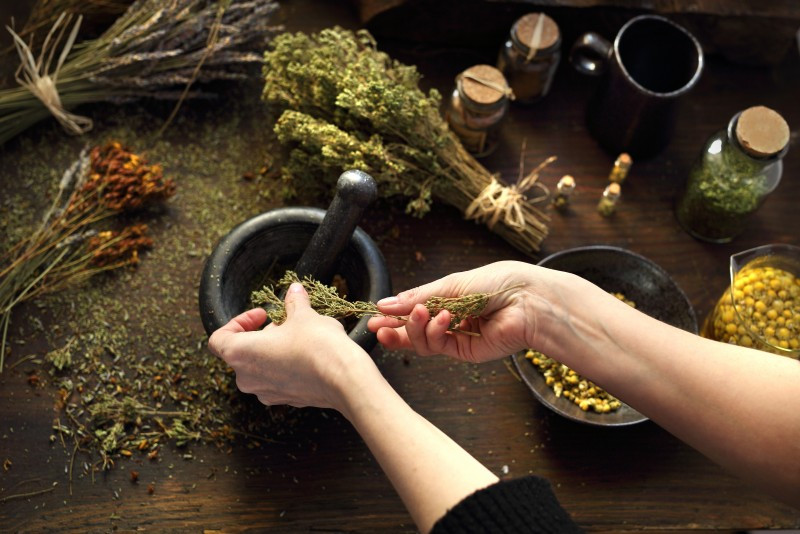It is a blessing and a wonder that nature gives us natural medicine. The field of herbalism is the study and practice of herbal medicine. In this article, we take a brief look at the field of herbalism, and then we discuss four of the most studied and effective herbal supplements that are available.
Herbalism and Its Place in Medicine
Herbalism, also known as phytology, is an area of medicine all its own. Herbalism is a medicinal practice that has existed for thousands of years. Two of the oldest herbalist traditions are the Ayurvedic practice in India, and the Chinese herbal medicine tradition. By the end of the 20th century, the western field of herbalism had become well-established after doing a fair amount of "catching up" by overcoming doubters from some corners of modern medical practices.
Herbalism and herbal products are made up of the seeds, berries, roots, leaves, bark, and flowers of a wide variety of different plants. Hundreds of different herbs are used medicinally in western herbal medicine. Interest in herbal medicine has grown tremendously in recent decades in the U.S. This has resulted from an increased dissatisfaction and aversion to prescription medications among medical patients, in a general sense. Some herbs stand out for their proven benefits in mitigating or remedying certain health complications.
Five Excellent Herbal Supplements
There are somewhere around 600 or more herbal supplements on the market and over the counter.Some really stand out due to their acclaimed benefits, and the scientific research and efficacy to support their uses. Following is a look at five of the most studied and most recommended herbal supplements available, and some of their potential benefits.
Ginger root: Ginger is a renowned herb with dense, hearty roots. It's believed to have antibacterial, anti-inflammatory, and antiviral properties. Among other uses, ginger is most used and perhaps most effective for digestion. It does so by helping get rid of gas and supporting digestion, which makes it effective in mitigating constipation. Ginger root can also relieve nausea, as well as support the immune system in combating various types of infections.
Echinacea is one of the most commonly used herbal supplements of the last decade, and it is most known for supporting the immune system against infections. It has even been studied for preventing the common cold, with some studies showing it to be significantly effective in decreasing the risk of contracting the common cold. It could also support recovery from infections.
Saw Palmetto is helpful for men, because it can mitigate the symptoms of benign prostatic hyperplasia (BPH), or an enlarged prostate. It's been touted for (and supported in some studies) reducing excessive and untimely urination, including at night, a symptom which tends to occur in the course of BPH.
Milk Thistle is an herb with unique potential. It is recommended for the preservation of the liver. According to some studies, taking milk thistle could help prevent damage to the liver (e.g., cirrhosis and hepatitis), which results from autoimmune disease and other causes. Milk thistle is also touted for helping with gallbladder issues, and it could reduce blood sugar and cholesterol levels in diabetic people, as well.
The field of herbal medicine provides a huge array of herbal supplements. If you're new to herbal medicine, then these are just four of the most studied and renowned herbal supplements. It's recommended that you talk to your healthcare provider before taking one of these herbal supplements, since some of them could interact with other medications.

